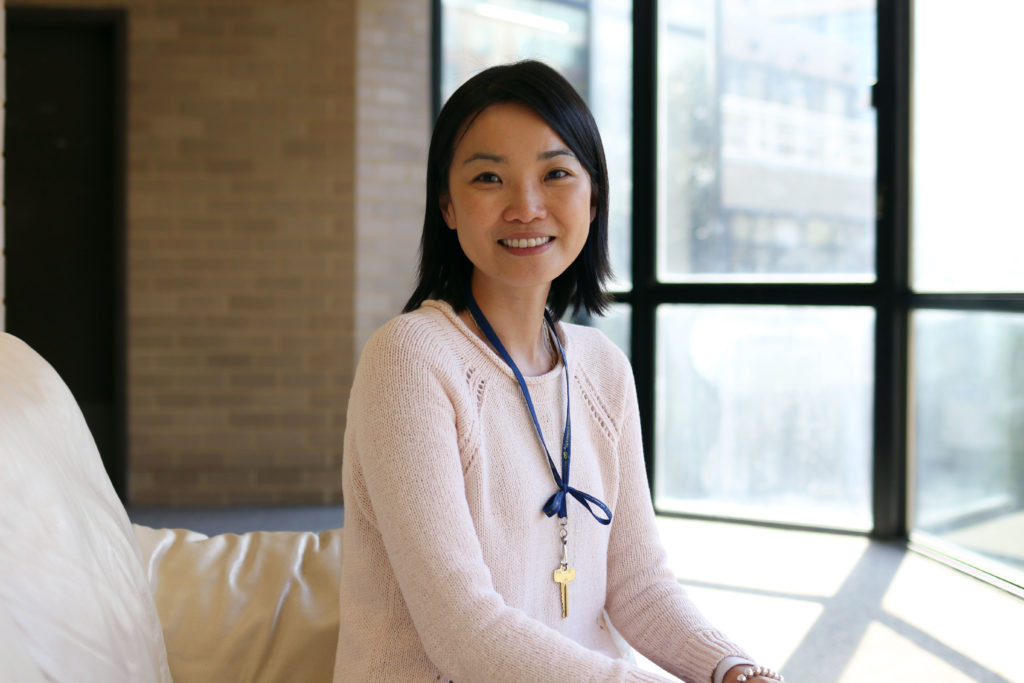Chinese language professors will host a new workshop next month for faculty interested in learning how to teach Chinese.
The Department of East Asian Languages and Literatures will hold the inaugural Chinese Teaching Methods Workshop on May 3 featuring three presentations from Chinese language professors. The seminar, which faculty intend to hold annually, will educate Chinese language instructors about effective teaching techniques and improve Chinese literacy in the United States, faculty said.
Hang Zhang, an assistant professor of Chinese language and linguistics, said the presenters at the workshop, which will take place in Phillips Hall, will use several techniques to improve participants’ teaching skills, including large and small discussion sessions and individual reflections. Faculty at the workshop will learn how to incorporate visual arts and culture into their teaching practices, she said.
“The experts will draw on research-based best practices from the literature on teaching and learning and help participants consider ways to apply those best practices in their teaching and students’ learning,” Zhang said in an email.
She said the workshop will help non-native Chinese language instructors improve their understanding of Chinese – a language the U.S. State Department considers “super hard,” its highest difficulty rating based on how many hours of classroom instruction a native English speaker would need to speak the language proficiently.
“The learning and teaching of Chinese as a second language is challenging,” Zhang said. “This workshop will provide professional development opportunities for Chinese educators inside and outside of GW.”
Zhang said the workshop will feature a presentation from Phyllis Zhang, the director of the Chinese Language and Culture master’s program and an associate professor of Chinese and international affairs. She said the director will discuss how digital tools can promote Chinese-language literacy.
The other two presenters will include an associate professor of Chinese at the University of California, Davis and the director of the department of Chinese international education at Zhejiang University of Science and Technology, Zhang said.
She said the East Asian languages department plans to open the workshop to an international audience next year by partnering with the Chinese as a Second Language Research Association, a research organization that produces a bilingual journal, to hold the workshop at the organization’s biennial conference.
Miaochun Wei, a teaching assistant professor in the Chinese language, said the workshop will be free for faculty who wish to attend. She said the department received a grant from the East Asia National Resource Center in January to assist the workshop’s launch.
“This grant allows us to do more professional development,” she said. “I think this is a great start, and we’d like to have more in the future.”
Wei said that although Chinese professors are the workshop’s primary audience, the event will benefit all foreign language faculty because the challenges facing professors of Chinese and other languages are similar.
“It would be great if we could see more of our colleagues within GW and also outside GW participate,” Wei said. “It is also kind of fun to talk to your colleagues – maybe they have really different opinions – but you just don’t know because you don’t really talk to them.”
She added that other schools, like Georgetown University, have workshops that test students’ oral proficiency in foreign languages. Wei said GW, which she said has the largest number of students enrolled in a Chinese program in D.C., should keep up with its peer institutions by providing similar resources.
Chen Yang, a professorial lecturer of Chinese, said the teaching workshops could help universities across the United States meet the growing demand for Chinese language education by providing more educators with the skills needed to teach the language.
He said the workshops could help improve Chinese proficiency among Americans, which could in turn improve the relationship between the United States and China, two of the richest and most powerful countries on Earth.
“Learning any language is important, but to be realistic, people should see this relationship that’s going on between U.S.-China relations and language is always a tool,” Yang said. “So I would encourage everyone to give it a try.”





